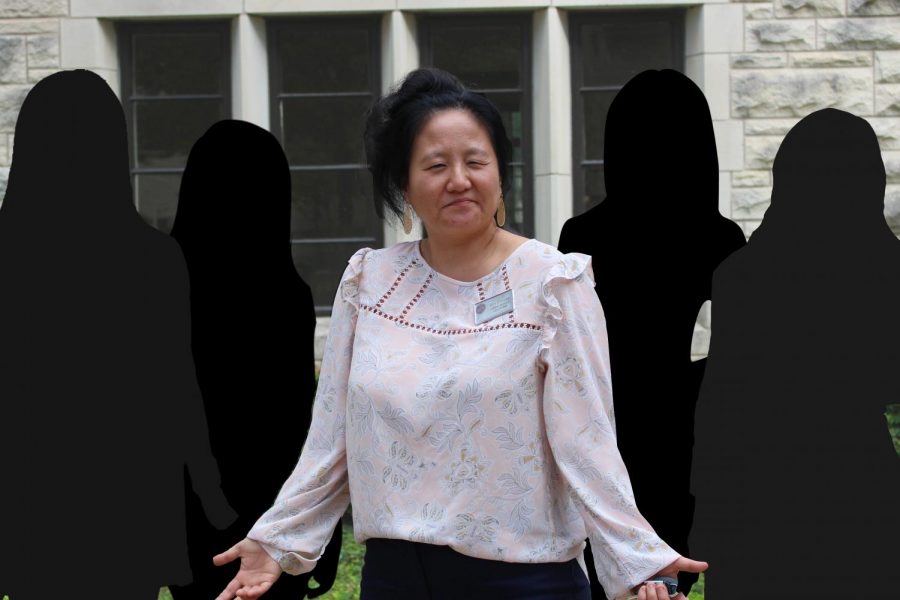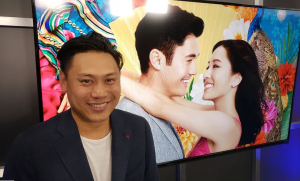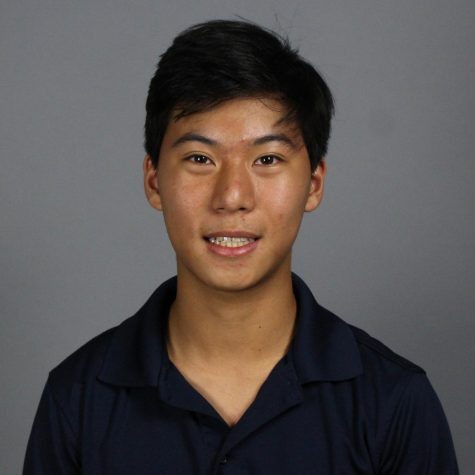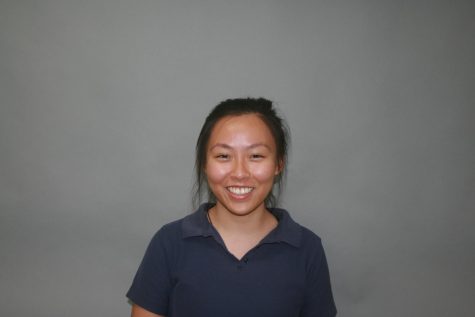#AsianAugust: Asian-American representation in media trends upward
At a young age, Latin teacher Kim Dickson struggled to find Asian-Americans represented positively in media.
September 25, 2018
Growing up, Kim Dickson rarely saw her Asian-American identity accurately portrayed in any media.
Dickson, now the Upper School Latin teacher, remembers how little she knew about Korean culture at the time—her small-town Minnesotan school was virtually all-white, and because she was adopted, no one around her looked similar.
“One of my mom’s biggest regrets was that she wished that somehow our family had gotten me ingrained in [Korean] language and culture a little bit better,” Dickson said.
After her first trip to Korea when she was 12, Dickson looked more into Korean culture, watching The History Channel and reading anything she could get her hands on. Despite this, she still never found any accurately portrayed Asian characters in entertainment media.
“I don’t remember anything growing up that was racially appropriate,” Dickson said. “The first Asian movie character I remember seeing as a kid was Pat Morita in Karate Kid.”
Today’s popular media is slowly moving towards a new era of representation for Asians, indicated by movies released in the tail end of summer: Crazy Rich Asians, To All the Boys I’ve Loved Before and Searching.
To All the Boys, released by Netflix in August, attempts to reconcile the history of discriminatory portrayals of Asian characters by normalizing the lives of Asian teens. Despite her Korean background, Lara Jean (Lana Condor) is depicted as a typical teenager throughout the film. Hobbies like baking and an interest in fashion frame Lara Jean to be like any other girl, and as her relationship with Peter (Noah Centineo) progresses, Lara Jean proves to be warm-hearted and approachable.
“The more opportunities young Asian-Americans have as far as being able to see positive portrayals in the media and popular entertainment go, the better,” East Asian Affinity Group sponsor Jack Soliman said. “Especially as a father, I always want to be sure that my daughter feels positively about her own Asian identity.”
To All the Boys I’ve Loved Before was published as a novel in 2014; Overbrook Entertainment bought the film rights only two months after publication. In the four years leading up to the film’s release, the novel’s author, Jenny Han, repeatedly turned down numerous studios wanting to cast a white actress as Lara Jean.
This whitewashing of Asian characters has been a norm in the past. The Last Airbender, released in 2010, cast white actors as characters in a world inspired by East Asia, prompting a boycott by the Media Action Network for Asian Americans. In 2015, Emma Stone portrayed Allison Ng, a quarter-Chinese, quarter-Hawaiian Air Force pilot in Aloha. Last year’s Ghost in the Shell cast Scarlett Johansson as Motoko Kusanagi, a Japanese character and the film’s lead. Despite strides to cast Asians in more roles, films still tend to whitewash characters.
“I thought that sort of trend was history, but apparently, it’s not,” Soliman said.
Searching’s approach to Asian portrayal follows a similar path to To All the Boys I’ve Loved Before, insofar as a thriller can relate to a romcom. Starring John Cho, the normalcy of Searching’s Korean-American family is almost startling in an era in which Asians are still not depicted accurately in media. Co-written and directed by Indian-American filmmaker Aneesh Chaganty, the film is decisively a win for Asian representation in Hollywood.
The film follows David Kim (Cho) as he desperately searches for his missing daughter, Margot (Michelle La). Though the Kim family is Korean, their ethnicity has no real bearing on the plot and is not touched upon, besides a mention of kimchi gumbo. By taking focus away from solely Asian culture, Searching is the epitome of what the Asian community strives for in popular media: media in which being Asian is normalized. Chaganty does not need to explain why his character is Asian, he just is.
Furthermore, in Searching, Cho plays the role of a hero, something not often seen in popular media.
“Traditionally, in Hollywood, Asians have been used for comic effect,” Soliman said. “For too long, Asian-Americans haven’t been portrayed as heroes or worthy characters to look up to.”
Both Searching and To All the Boys are groundbreaking films in terms of representation and portrayal and have generated larger conversations about Asians in popular media. That discussion of representation needs to continue.
“There’s a sense of pride [walking out of the movie theatre] because it’s so cool to come out of a movie and say, ‘I totally understood that, I can really relate. I felt super close to that movie,’” EAAG officer Nicole Doyle said. “It’s like its related to who I am and what’s going on in my life.”









